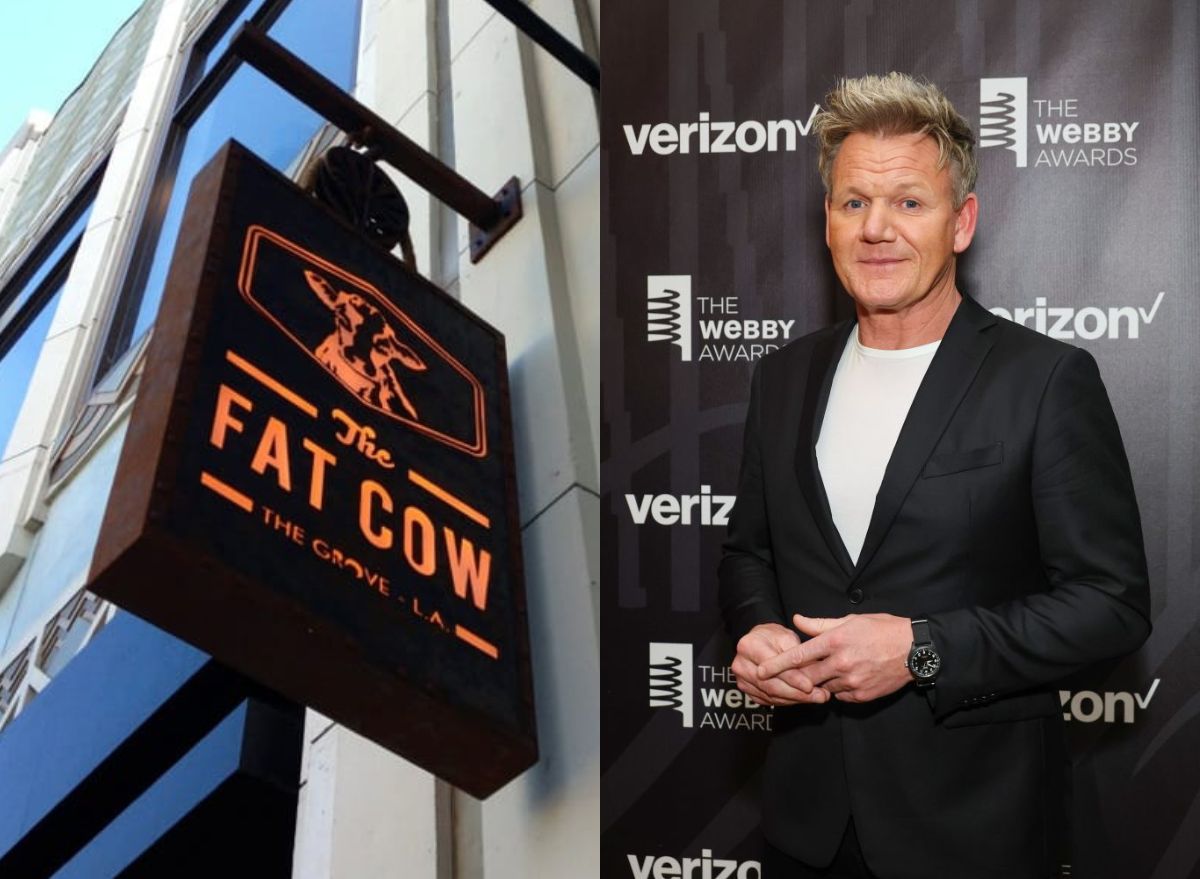A career in the kitchen is hardly an easy path. A chef's work is done behind closed doors, oftentimes in cramped surroundings and under enormous pressure. And, even if you are lucky enough to climb the culinary ranks and become head chef, you'll still be largely anonymous.
The general public tends3 to remember flavors, meals, and restaurants. That is, unless a chef has written a few best-selling cookbooks, won a couple of James Beard Awards, or makes regular TV appearances. Indeed, it's incredibly rare, but a select few chefs enjoy a true celebrity status.
Of course, with celebrity also comes opportunity. Famous chefs often look to capitalize on their popularity by opening their own restaurant. Ironically, running a successful restaurant might actually be more difficult than succeeding as a chef. While some statistics have claimed as many as 90% of restaurants fail in their first year, the real numbers are probably closer to around 30%. Still, that works out to one in three new restaurants shutting down within just one calendar year. Those aren't the best odds, considering the type of money it takes to open an eatery in the first place.
The late, great Anthony Bourdain was one of the most recognizable "celebrity chefs" in recent memory. Unlike many of his peers, though, Bourdain had stepped away from the heat of the kitchen by the time he reached fame. Working as a chef in New York City for decades, Bourdain watched countless restaurants open and fail in record time. The experience left him with a pessimistic, if not realistic, perspective on owning a restaurant.
"To want to own a restaurant can be a strange and terrible affliction. What causes such a destructive urge in so many otherwise sensible people? Why would anyone who has worked hard, saved money, often been successful in other fields, want to pump their hard-earned cash down a hole that statistically, at least, will almost surely prove dry?" He wrote in his best-selling book Kitchen Confidential. "What insidious spongi-form bacteria so riddles the brains of men and women that they stand there on the tracks, watching the lights of the oncoming locomotive, knowing full well it will eventually run over them? After all these years in the business, I still don't know."
Bourdain may have avoided the restaurant business, but the same can't be said for many others. Here are five celebrity chefs whose restaurants ended up being a flop.
Gordon Ramsay
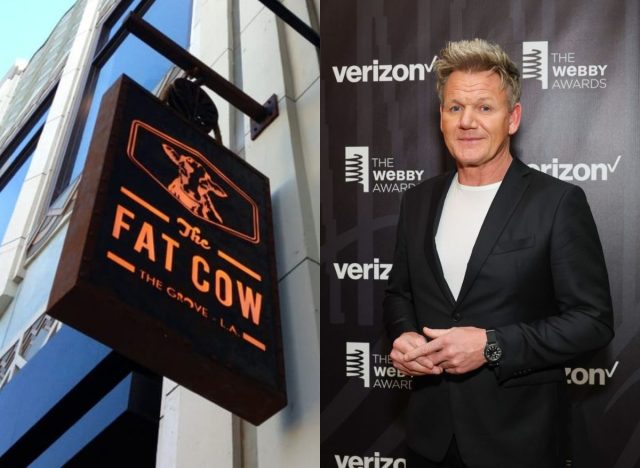
Perhaps best known for hurling insults at struggling restaurateurs, Gordon Ramsay may have found fame on television, but he's also a fantastic chef. Having amassed an incredible 17 Michelin stars over the course of his culinary career, Ramsay owns numerous successful restaurants across the United Kingdom and the United States.
So why is he on this list? Even the best hitters strike out occasionally, and that was the case with Ramsay's Fat Cow restaurant, which opened in 2012 one of the most popular shopping centers in Los Angeles. To start, the West Coast eatery earned a poor review in LA Weekly titled "Fat Cow? Fat Chance. Gordon Ramsay's New Grove Restaurant Disappoints," Ouch.
It wasn't just bad reviews that sank The Fat Cow. Less than a year after opening Ramsay was hit with a lawsuit by the restaurant's contractor alleging unpaid bills. Then, just a few months later, Fat Cow employees filed their own lawsuit against Ramsay over unpaid wages and allegedly not providing meal breaks. Talk about Hell's Kitchen. After another restaurant with the same name threatened legal action if Fat Cow didn't change its name, Ramsay mercifully closed the restaurant in March 2014.
Ramsay may have another restaurant headache on the way, as his new fish and chips restaurant in NYC has already begun collecting bad reviews.
Jamie Oliver
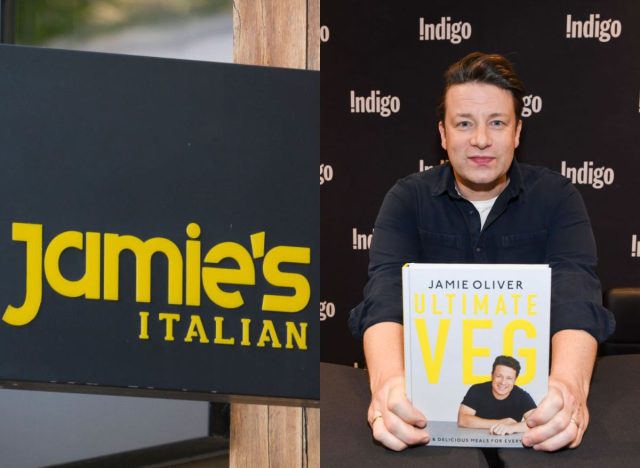
Another famous chef from the United Kingdom, once upon a time Jamie Oliver could have been considered a successful restaurateur. The past few years, however, have been incredibly unkind to The Naked Chef star.
Early 2017 saw the announcement that six of his Italian chain restaurants in the United Kingdom would be shutting their doors due to Brexit, but that same year he also ambitiously opened a second location of Barbecoa, his flagship steakhouse. Unfortunately, his food finances only got worse in 2018, with 12 more of his Italian eateries closing—both Barbecoa locations effectively filing for the U.K. equivalent of bankruptcy.
By May 2019, Oliver's entire restaurant group had entered into bankruptcy. All told, 22 of his once 25 restaurants are now gone.
Cat Cora
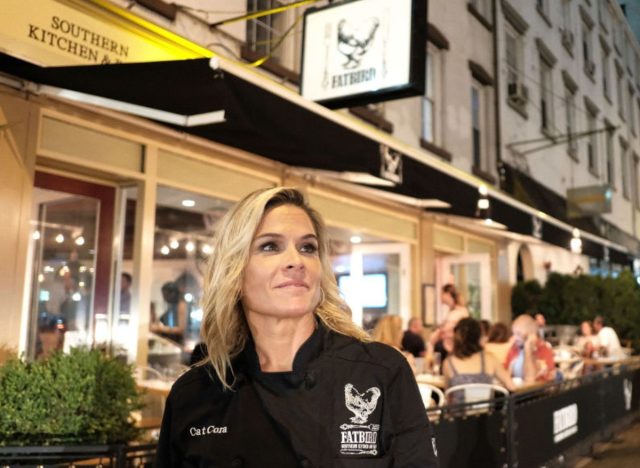
The first ever female Iron Chef, Cat Cora made her TV debut way back in 1999. While her work in culinary television for women was groundbreaking, her NYC restaurant Fatbird closed less than a year after its grand opening in 2017.
Offering Southern-themed comfort foods like chicken and biscuits, Fatbird certainly sounded like a good idea on paper, but the restaurant in Manhattan's Meatpacking District collected numerous bad reviews during its short seven-month run. Time Out awarded Fatbird just two stars out of five, and Eater's Robert Sietsema told readers the chicken was "flavorless" and the oysters "repulsive".
The death knell for Fatbird was a $400,000 lawsuit Cora filed against her business partner in the venture for allegedly failing to pay an agreed-upon consulting fee. Mere weeks after the lawsuit was filed, Fatbird closed its doors permanently.
Anne Burrell
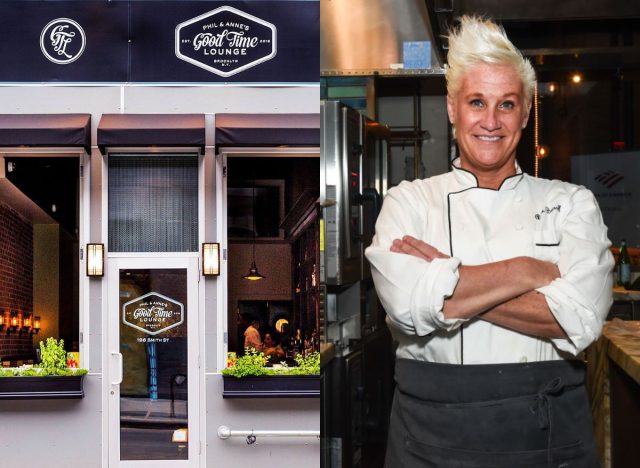
Anne Burrell first started appearing on TV as a sous chef for Mario Batali on Iron Chef, but since then she's hosted her own shows on The Food Network such as Secrets of a Restaurant Chef and Worst Cooks in America. In 2017, she entered the restaurant business for the first time, opening Phil and Anne's Good Time Lounge in Brooklyn, N.Y.
The experience turned out to be not such a good time, however, for both Anne and her business partner Phil Casaceli. The eatery didn't even last a year, and was reportedly plagued by animosity between the two owners. Eater reported at the time that Phil and Anne could hardly agree about anything regarding the restaurant—from music played inside to the hours the restaurant stayed open.
Casaceli told Eater that Burrell believed her celebrity would be enough to make the eatery a success, but the restaurant was closed for good by April 2018. What about the actual food? Just like everything else about the "good time lounge," the menu couldn't seem to agree on a theme. Described as "Mediterranean cuisine with Italian influences," the menu included tater tots, Korean-style ribs, and "hogs in hoodies" (pigs in a blanket).
Masaharu Morimoto
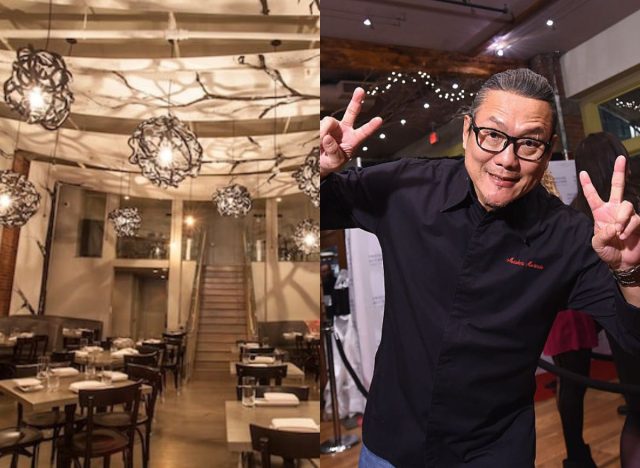
Some celebrity chefs are all flash with little substance, Masaharu Morimoto is not one of those chefs. One of the original Iron Chefs, Morimoto's credentials speak for themselves. Michelin stars, James Beard awards, San Pellegrino's "Top 100 Restaurants in the World" list—he's done it all.
Naturally, when Morimoto opened Tribeca Canvas in 2012, foodies and food critics alike couldn't wait to try the new NYC restaurant. Advertised as a departure from Morimoto's typical Asian-centric cuisine towards "American comfort food," the eatery's interior even featured a trippy, forest-like design.
Tribeca Canvas seemed like a sure thing, until patrons tried the food. The restaurant received scathing reviews from numerous local outlets.
"If human civilization had been destroyed and the earth was a cultural wasteland, if all a young cook had to go on was a recipe collection preserved by T.G.I. Friday's, then he might come up with this flabby mash-up of a menu, on which every overwrought dish is an amalgam of international fast-casual concepts," wrote The Village Voice's Tejal Rao. "Weenies in too-big, spongy fat-suits of batter pass as corn dogs ($9.50), sitting in a mess of gochujang-flavored ketchup. You've had finer corn dogs from a box."
Morimoto even tried to reboot Tribeca Canvas under a different name, but that second iteration only lasted three months. All told, the restaurant was shut down completely in less than a year.
